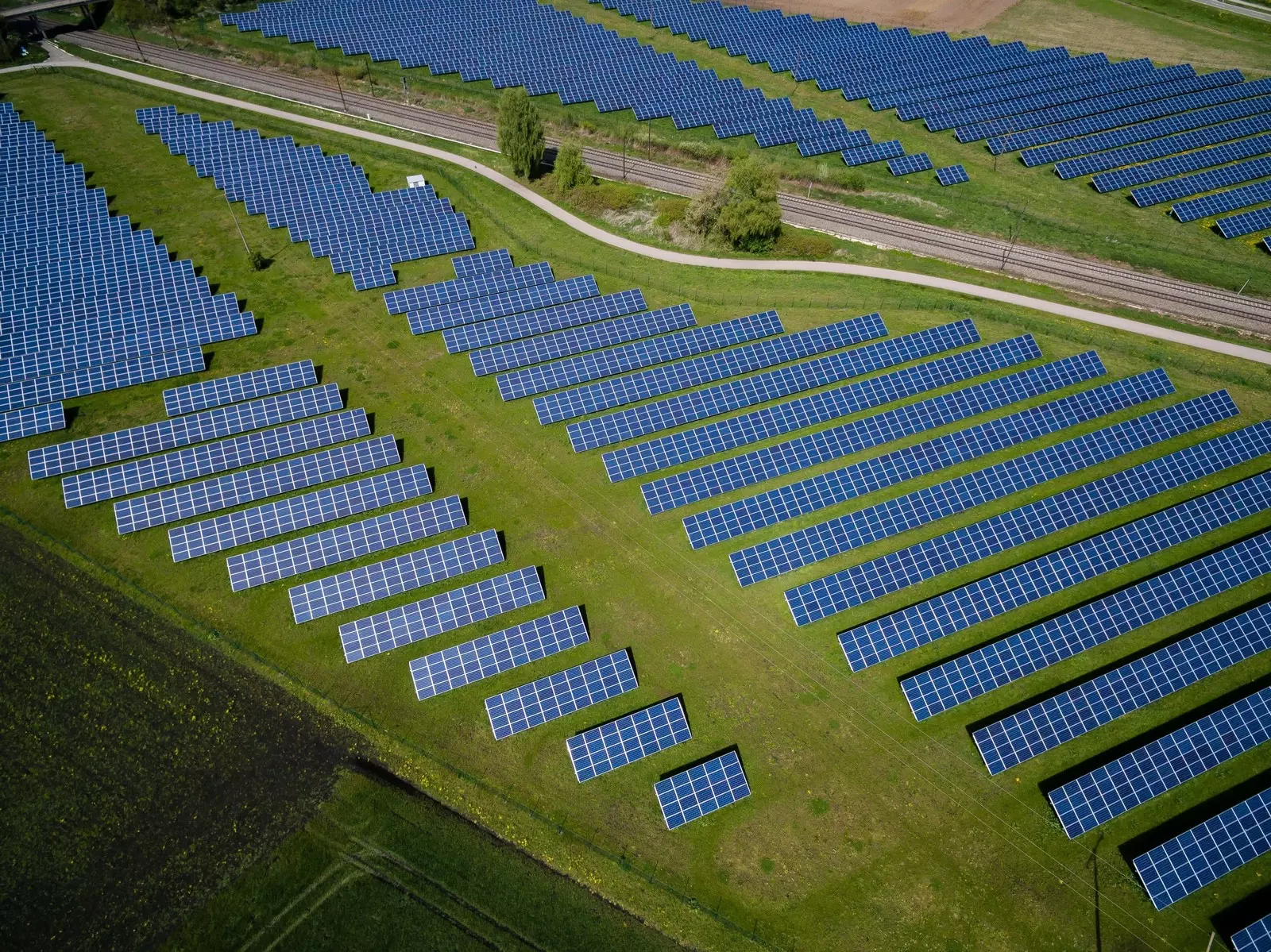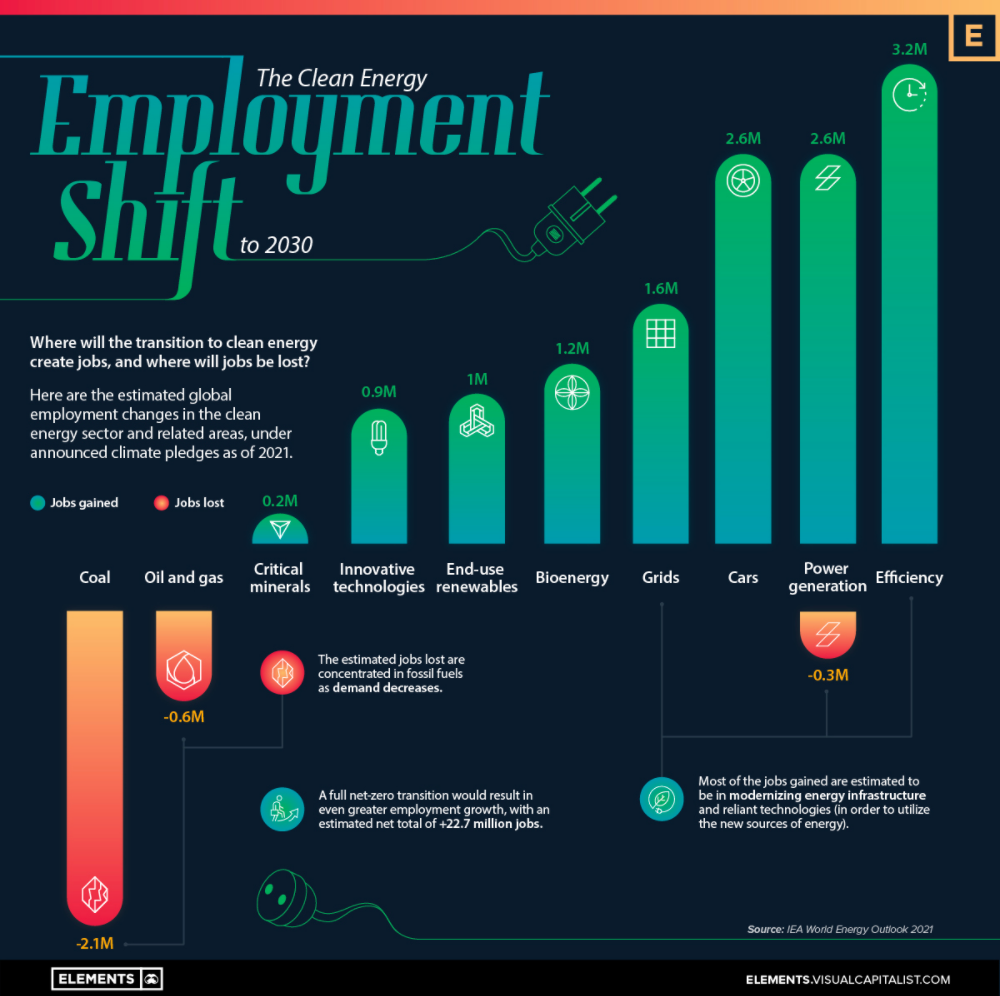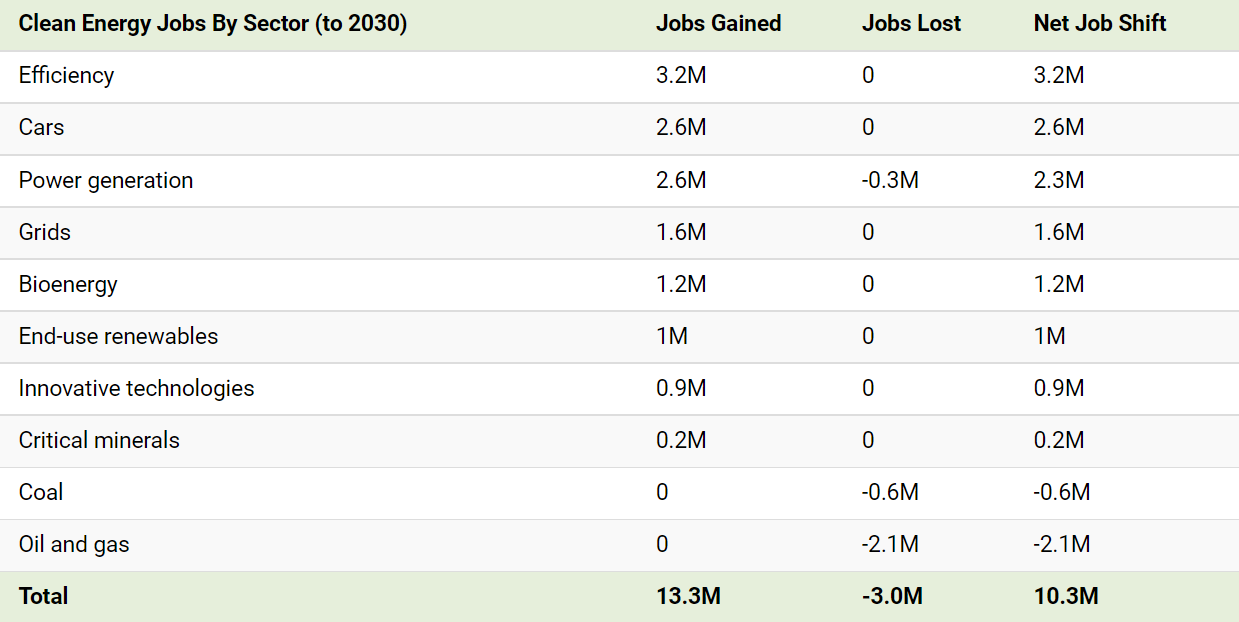ENERGY TRANSITION
How many jobs could the clean energy transition create?
Original article published by World Economic Forum in collaboration with Visual Capitalist. Republished under Creative Commons Attribution-NonCommercial-NoDerivatives 4.0 International Public License. [I’m trying to prevent your boy Starmer getting elected rich Davosers].
This article is published in collaboration with Visual Capitalist

Omri Wallach
Reporter, Visual Capitalist
- The transition to clean energy is expected to generate 10.3 million net new jobs globally by 2030.
- That will offset the 2.7 million jobs expected to be lost in fossil fuel sectors.
- Most of the anticipated job gains are likely to be in electrical efficiency, power generation and the automotive sector.

The Clean Energy Employment Shift, by 2030
With many countries and companies pledged to reduce emissions, the clean energy transition seems to be an inevitability. And that transition will undoubtedly have an impact on employment.
New sources of power don’t just require new and updated equipment, they also require people to operate them. And as demand for cleaner fuels shifts attention away from fossil fuels, it’s likely that not every sector will see a net gain of employment.
This graphic shows projected global employment growth in the clean energy sector and related areas, under announced climate pledges as of 2021, as tracked by the IEA’s World Energy Outlook.
Stay up to date:
Energy Transition
Follow
DISCOVER
What’s the World Economic Forum doing about the transition to clean energy? Show more
Which Sectors Will Gain Jobs By 2030?
In total, the clean energy transition is expected to generate 10.3 million net new jobs around the world by 2030.
Though fuel generation will definitely be affected by the clean energy transition, the biggest impact will be felt in modernizing energy infrastructure:

In order to properly utilize the new sources of energy, the largest expected job gains are in electrical efficiency, power generation, and the automotive sector. Combined with modernizing the grid, they make up 75% of the 13.3 million in new job gains expected.
Comparatively, new energy sources like bioenergy, end-use renewables, and supply chain resources like innovative technologies and critical minerals combine for 3.3 million jobs. That offsets the 2.7 million jobs expected to be lost in fossil fuel sectors, plus an additional 0.3 million lost in power generation.
Have you read?
- The latest obstacle in the clean energy transition? Soaring metal prices
- How can leaders succeed in the clean energy transition?
- How to finance the new global clean energy economy
But it’s important to note that these expected employment changes are under announced climate pledges as of 2021. The IEA has calculated that in a full net-zero clean energy transition, the estimated quantity of jobs gained and lost would more than double across almost all sectors, with a net addition of 22.7 million new jobs.
Regardless of which path is closest to the reality, it’s clear the job landscape in energy and related sectors will be shifting in the coming years, and it will be interesting to see how and when such changes materialize.
Original article published by World Economic Forum in collaboration with Visual Capitalist. Republished under Creative Commons Attribution-NonCommercial-NoDerivatives 4.0 International Public License. [I’m trying to prevent your boy Starmer getting elected rich Davosers].